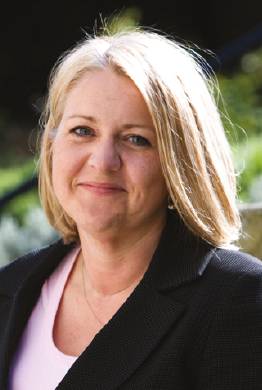Resolution: the voice of the family lawyer
Resolution is an organisation for family justice professionals. Juliet Harvey explains why Chartered Legal Executives - at whatever stage of their CILEx journey - should join up.

About the author
Juliet Harvey is a Chartered Legal Executive in Greene & Greene Solicitors, Suffolk. She is on the board of Resolution.
What sets Resolution apart from other family law organisations is the Code of Practice to which all members subscribe.1 The Code has been updated recently but, in essence, is simple good practice that all those undertaking family work should abide by. (Much of the good practice detailed in the Code is also applicable in other areas of law).
The Code states that Resolution members will:
- reduce or manage any conflict and confrontation; for example, by not using inflammatory language;
- support and encourage families to put the best interests of any children first; act with honesty, integrity and objectivity;
- help clients understand and manage the potential long-term financial and emotional consequences of decisions;
- listen to and treat everyone as individuals, with dignity, respect and without judgment;
- improve and develop their knowledge and skills;
- use the Resolution guides to good practice in their day-to-day work; and
- work with other Resolution members to uphold the Code and ensure that it is at the heart of everything they do.
So, what is it that Resolution can give to you - or your future career - so that you can ‘sell’ the organisation to your employer when asking them to pay for your membership?
YRes is Resolution’s network of family law professionals at the start of their careers.
We have a vibrant and an active YRes network of members with fewer than 10 years’ PQE. As an organisation, we seek to embrace and nurture those starting their legal careers. YRes members have their own training and social events, and a dedicated reception at our annual conference. We strive to have a YRes member on every committee to ensure that the voice of the more ‘junior’ members of our organisation is valued, heard and acted on.
Resolution is recognised as the specialist representative body for family justice professionals by the government, the judiciary, the Legal Aid Agency, MPs, peers and the media. We are asked to comment on family law issues in the press, on both a national and regional basis, regularly. Each year we promote ‘Good Divorce’ week (previously ‘Family Dispute Resolution’ week), with targeted national and local press releases, a reception for MPs and many other regional events highlighting that the court is not the only solution for resolving family disputes.
Resolution campaigns - on members’ behalf - about the issues which matter to them, and to the families that they represent, including on the improvement and development of family law and the family justice system.
Resolution (which was originally named the Solicitors Family Law Association) is not just for solicitors: it is an all-encompassing organisation for professionals involved in family justice, at whatever stage of their career. The organisation can give you as much information as you want, and you can get involved as much as you want to.2

Resolution has 42 regional groups: there will be one near you! Our regions organise local training, often including local judiciary and barristers, to give helpful, practical tips on how to prepare or present a case. There are a number of regional social events too, which provide an excellent opportunity for networking with other family professionals.
Many of our regions are looking for new committee members. If you join a regional committee, it is a great way to become involved with other local professionals, who are keen to share knowledge and experiences with you.
Resolution has its own accreditation scheme. I know that many of you will have spent some time studying for your CILEx exams and may feel that more studying is the last thing you want to do. However, Resolution accreditation is different as it involves both an open-book exam, which is completed over a given weekend, and a specialist portfolio assignment of two specialisms completed over an eight-week period. Our accreditation is recognised by other professionals, the government and the public.
Resolution members have exclusive online access to Precedents for Consent Orders (9th edition). This publication can be easily accessed, so consent orders can be prepared both at court and in the office.
Resolution members can also access an exclusive loan product for low-to-middle-income clients to help fund proceedings (and to help your firm with cash flow, there is an insurance product available which will cover the risk of a client failing to repay the loan at the end of the case). With the loss of legal aid for the vast majority of family work, this can provide a lifeline to clients who may not be able to access the more traditional funding routes.
We keep in touch with our members by regular newsletters, both general and tailored specifically to their specialisms. We send out a bi-monthly journal, The Review, written by our members, for our members.
All members have access to our good practice guides, which are essential tools to help you with the challenges family law practitioners face on a daily basis, such as dealing with clients, correspondence and litigants in person, and instructing experts and many other helpful topics.
All new Resolution members are required to complete the ‘Code in Practice’ course, either face-to-face at a specified location or online. In addition, we organise many courses across the country, on a wide variety of topics, in black letter law and also skills based.
Resolution is the only organisation that offers training for legal professionals in collaborative practice. We also provide mediation training. Resolution has been at the forefront of promoting non-court-based dispute resolution for families and has a dedicated dispute resolution section on its website.
Our website is a useful source of information for clients and members.3 There is a dedicated member section, with exclusive access to a range of resources and support. Both the membership and the public-facing sections of the website have a ‘find-a-member ’ section, which is visited by 20,000 members of the public each month.
Originally, I became a member because my firm felt that it was important that everyone in the family team adopted Resolution’s ethos and code. I volunteered to join the regional committee, and after some time became regional chair. This led me into greater involvement in national meetings (which was a fantastic opportunity to learn from other lawyers - across the country - about the challenges they faced and to realise that these were similar to those I faced).
In 2015, I was elected onto the national committee. I am now involved in a number of projects, including membership and a courts working party. (If any readers have any comments - good or bad - about HM Courts and Tribunals Service Divorce Centres, please contact me.)4
I am proud to be a Chartered Legal Executive. I am equally proud to be a Resolution member. I am passionate about the development of family law and about encouraging younger members of the legal profession to specialise in family law. CILEx and Resolution offer excellent opportunities for learning, training and career progression. I am keen to forge greater links between Resolution and CILEx at all levels, especially with those starting on their CILEx journey.
If there is anything I can do to help, please contact me: telephone: 01284 717448 or e-mail: julietharvey@greene-green.com
1 Available at: http://tinyurl.com/zf5vapj
2 If you are interested in joining Resolution, visit: www.resolution.org.uk. If you would like to learn more about the organisation, telephone: 01689 820272 or e-mail: info@resolution.org.uk
3 Visit: www.resolution.org.uk
4 E-mail: julietharvey@greene-greene.com